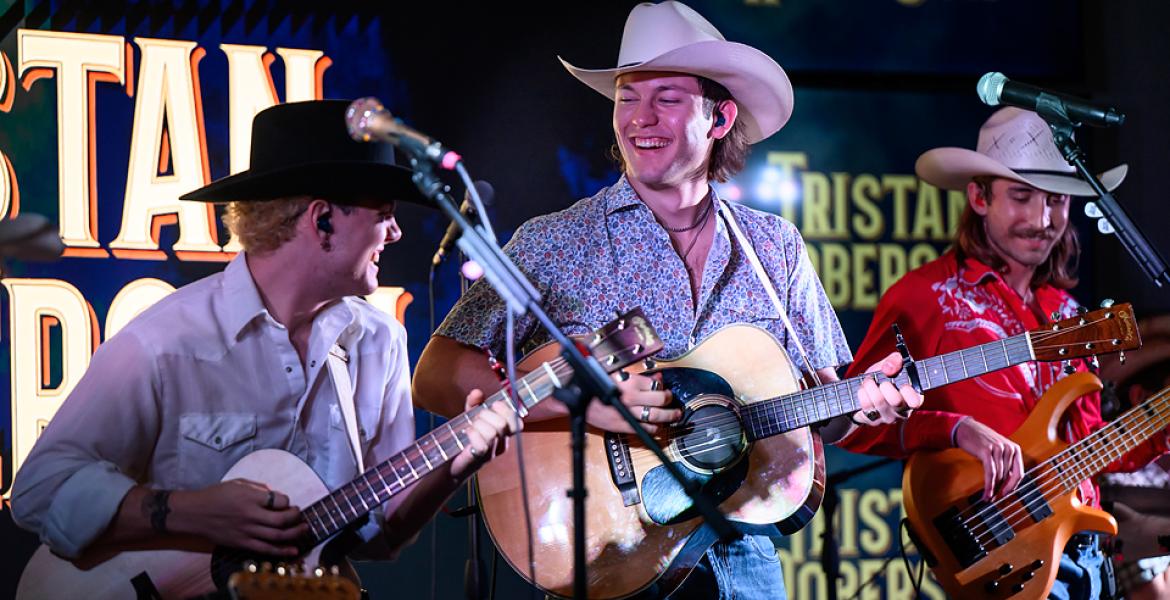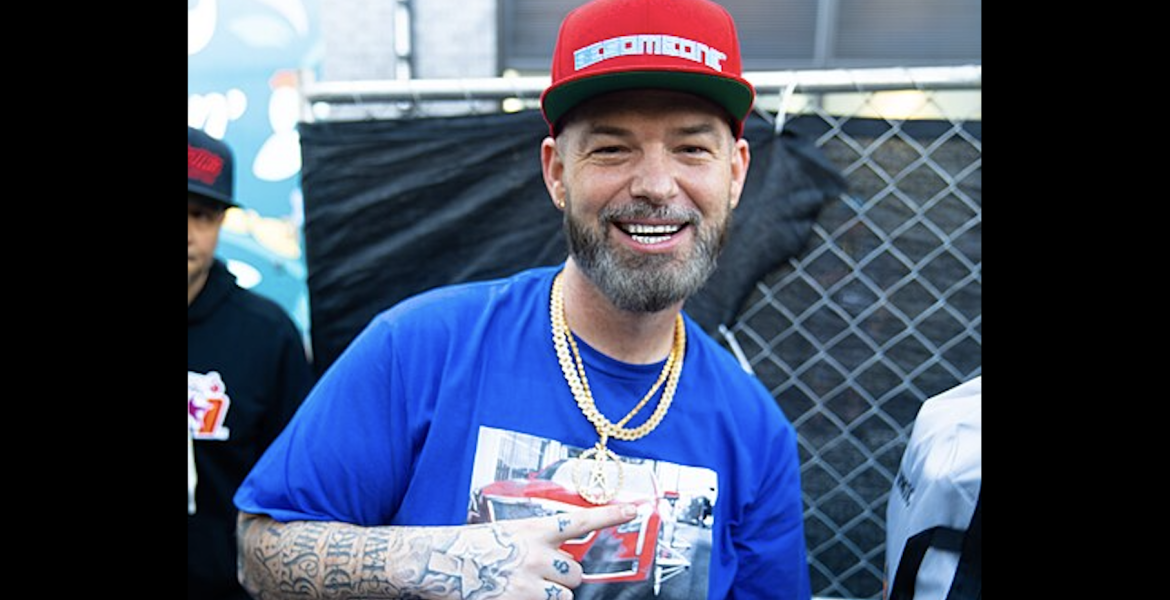“Music is important because it is like therapy--it heals. You can find medicine and things like that, but there is something music does that is much more impacting,” Kevin Brown said.
Here is Kevin Brown performing with Dan Carroll and the Tone Pirates. The song is a cover of Bob Seger's "Turn the Page." Although the song is not exactly jazz, this interpretation relies heavily upon Brown's jazz improvisation on the tenor saxophone.
[[{"fid":"2102","view_mode":"default","fields":{"format":"default"},"type":"media","attributes":{}}]]
After five ineffective operations as a young child, Brown, who was born without sight, has realized that there is only one thing that is truly curative for him.
The youngest of four children, Brown was born in Clairton, Pennsylvania to a family of musicians.
“I started playing clarinet when I was 7-years-old and I switched to saxophone when I was probably about 9-years-old,” Brown said.
He began playing professionally at the age of 15 when he turned his dad’s jazz trio into a quartet.
“My friends used to tease me all the time and say I was playing with a bunch of old farts,” Brown said. “We grew up in the '70s, we had a lot of really nice music coming up and I played all of that, but I really loved playing jazz.”
Brown joined his high school jazz band and continued to dedicate his time to developing his musical skills.
“My friends would come by ready to play basketball or something and I would tell them ‘Well I’m practicing [playing the the saxophone]’ and they would say, ‘Well you’re always practicing,’” Brown said.
The time he spent practicing was noticed during a performance with the high school jazz band in Pittsburgh.
“We play downtown and a guy from the University of Pittsburgh approached my band director asked him if they thought I would be interested in going on a trip,” Brown said.
The trip was part of a jazz study program sponsored by Henry Ford Community College. It offered Brown an opportunity to travel internationally.
Brown said, “We went to Montreux, Switzerland. It was me and another guy. We were only 17-years-old and rest of the group was in their '20s and '30s. There were some doctors and lawyers and I was thinking to myself 'how in the world did get into this?'”
During the trip Brown also performed at the Montreux Jazz Festival. This would be the beginning of his world travels as a musician.
After studying at Berklee College of Music, Brown moved to Chicago. He was invited by a friend to come visit Texas.
“It was thirty degrees in Chicago and eighty degrees in Texas, and I really didn’t like the cold,” Brown said on his motivation for moving to Texas.
He joined his friend in Abilene, and before long was back in the music scene.
Brown said he met some guys that were playing with Long John Hunter. He would play his saxophone with them and was soon asked by Hunter’s manager to join the band.
He began touring with Long John Hunter in ’94. They would travel throughout the country, as well as abroad.
“I traveled pretty close to 20 countries; Switzerland, Holland, Belgium, Turkey,” Brown recalled.
The group would travel two months internationally then two months within the U.S.
“It was a lot of work,” he said.
Brown said, “We did a gig in East Germany, it was at a monastery way out in the middle of nowhere. I thought to myself 'nobody is going to come to this gig because it is way out', but when we got there there were thousands of people. I couldn’t believe it.”
He found that people around the world had a great appreciation for jazz and blues--sometimes even more than his homeland.
“We would go over there and leave the United States and it was like we were the Rolling Stones or something, then we would come back to the U.S. and it was like okay, we are back normal,” Brown said of people’s reactions to the musicians.
After three years of playing with Long John Hunter the group stopped touring. Brown found himself back in Abilene without a work.
“I was looking for work but I couldn’t find a job, People don’t hire blind people regularly,” Brown said.
His counselor with the Blind Association told him about the Light House for the Blind in San Angelo. Being Browns only option, he moved to San Angelo. Here he worked, producing office products.
“I never took time off but I wanted to play more music. Working there was great, but I didn't want to do that the rest of my life,” Brown said.
On his 57th birthday, Brown decided he would give up his job and begin playing music full time.
Brown now plays both solo and with other bands. He travels to different gigs and has regular performances in San Angelo.
He said, “It [music] is probably the main thing in my life other than the Creator. Music is what my life is about--it refreshes me.”
Brown lives in an apartment by himself where he says he is very organized.
“I have a mental image of what my apartment looks like,” he said.
And if the weather is right outside, Brown will take a stroll to the corner and play some tunes on his guitar.
He said, “I feel like it is something I am blessed to be able to do, and to be able to share with people and the rest of the world is kind of my responsibility.”
Brown says all he aspires to do with his music is to somehow inspire others to do the right thing.
He says music is essential in the lives of all people because “It relieves a lot of stress. There is so much negativity going on these days for the most part, and I think music is there to inspire something different. Music does that because it is supposed to be there--it is something we are supposed to have--if we didn't have instruments people would still be humming and singing.”
Brown writes his own music and has recorded a number of CDs. For more information on Kevin Brown visit his website at www.cursebustersound.com.
Subscribe to the LIVE! Daily
Required






Comments
Listed By: Tony Barker
- Log in or register to post comments
PermalinkPost a comment to this article here: